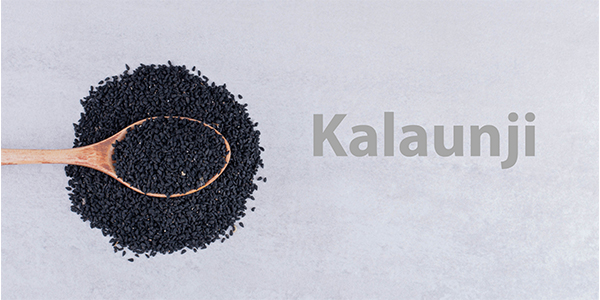[the_ad id=”6076″]
Nestled within the rich tapestry of traditional medicine in the Indian subcontinent lies a tiny yet potent seed known as Kalaunji or Nigella sativa. Revered for centuries in Ayurveda and Unani healing systems, and mentioned in the Holy Quran, Kalaunji has earned its place as a powerhouse of medicinal properties and holistic wellness. Let’s embark on a journey to explore the profound healing potential of this remarkable seed.
Historical and Religious Significance:
Kalaunji holds a revered status in Islamic tradition, with its mention in the Holy Quran. In Surah Al-Hadid (Chapter 57, Verse 25), it is referred to as “Habbat al-Sawda” or the “Black Seed,” where it is praised for its healing properties. This acknowledgment in religious scripture underscores its significance as a divine gift for health and well-being.
Ayurvedic and Unani Medicinal Properties:
In Ayurveda and Unani medicine, Kalaunji is hailed for its diverse therapeutic properties. Rich in essential nutrients, vitamins, minerals, and bioactive compounds, Kalaunji exhibits antioxidant, anti-inflammatory, antimicrobial, and immunomodulatory effects.
Studies have shown that Kalaunji seeds possess analgesic properties, making them effective in alleviating pain and inflammation associated with conditions like arthritis and rheumatism. Additionally, their antimicrobial properties aid in combating infections and boosting the immune system.
Management of Various Disorders:
Kalaunji seeds have been extensively studied for their potential in managing a myriad of health conditions:
- Diabetes: Research suggests that Kalaunji may help regulate blood sugar levels by improving insulin sensitivity and reducing insulin resistance, thus offering a natural approach to diabetes management.
- Digestive Disorders: The carminative and anti-inflammatory properties of Kalaunji make it beneficial for digestive health. It aids in relieving symptoms of indigestion, bloating, gas, and acidity.
- Respiratory Conditions: Kalaunji is known for its bronchodilator and anti-inflammatory effects, making it useful in alleviating symptoms of asthma, bronchitis, and allergies.
- Cardiovascular Health: Regular consumption of Kalaunji seeds may help lower blood pressure, reduce cholesterol levels, and protect against heart disease and stroke.
- Skin and Hair Health: Kalaunji oil, derived from the seeds, is valued for its nourishing and moisturizing properties. It is used topically to treat various skin conditions like eczema, psoriasis, and acne, while also promoting hair growth and scalp health.
Incorporating Kalaunji into Daily Routine:
Adding Kalaunji seeds to your daily diet is simple and can be done in various ways:
- Culinary Use: Kalaunji seeds can be sprinkled over salads, soups, or curries to enhance flavour and nutritional value.
- Herbal Tea: Brewing a few Kalaunji seeds into a warm herbal tea provides a soothing beverage that aids digestion and boosts immunity. It must be remembered that this tea has hot potency (heating and digestive effect in the body).
- Topical Application: Trace of Kalaunji oil can be massaged onto the skin or scalp by adding it to a base oil to nourish and rejuvenate, promoting healthy skin and hair.
Conclusion:
In the realm of traditional medicine, Kalaunji shines as a beacon of hope and healing, cherished for its myriad therapeutic benefits. Whether referenced in ancient scriptures, lauded in Ayurvedic texts, or embraced in modern scientific research, the potency of Kalaunji remains undeniable.
As we continue to unravel the mysteries of nature’s pharmacy, let us embrace the wisdom of our ancestors and harness the healing power of Kalaunji to nurture our bodies, minds, and spirits. In this humble seed lies a wealth of treasures waiting to be discovered, offering us a path towards greater health, vitality, and well-being.

